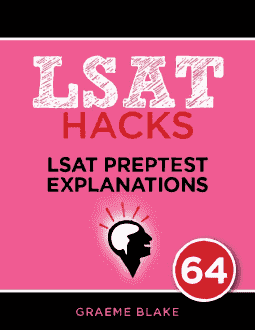QUESTION TEXT: Acquiring complete detailed information about all the…
QUESTION TYPE: Sufficient Assumption
CONCLUSION: Consumers are rational when they are too lazy to research the products they buy.
REASONING: It's rational not to research products unless you think the benefits of the research will justify the effort.
ANALYSIS: Sometimes it is worth it to research products you buy. It takes time, but you get a much better product as a payoff. Other times, research isn't worth it.
The argument assumes that if someone didn't do research then the research must not have been worth it. But that's not a good assumption, because sometimes people don't act in their own best interest.
We can prove the conclusion true if we assume that consumers are always correct that it would not be a good idea to research products. If it's not worth it to research, then it's rational not to research. It's almost a circular argument, but not quite.
___________
- We're trying to prove certain consumers are rational. This only tells us something about consumers we already know are rational.
- This would help us prove someone was irrational if they did research. But the argument wasn't trying to prove anyone was irrational.
- We don't care about what is “usually” true. The argument said that every consumer is rational when they refuse to research a product.
- Same as A. This tells us something about rational consumers. But we're trying to prove that certain consumers are rational, and this doesn't help do that.
- CORRECT. Here we go. Consumers don't think that research will benefit them. And the second sentence says it's rational not to research if you don't think the research will benefit you.


These walk-through’s are amazing, thank you!